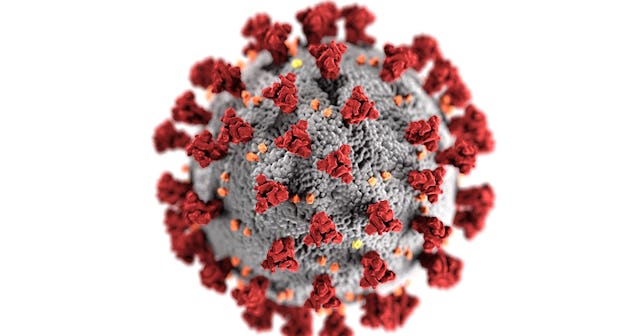COVID Variant B.1.1.7 Is Spreading More Among Kids Than Past Surges

The B.1.1.7 COVID variant is more contagious, more deadly, and seems to spread more easily between children
The U.S. has made huge strides in curbing COVID-19 infections with its vaccine rollout. But in recent weeks, cases have begun to rise again, and many scientists and public health officials believe more dangerous variants of the virus are to blame. The B.1.1.7 variant was first discovered in England and is believed to be more contagious and more deadly. Now, scientists in the U.S. say there’s evidence that it spreads more easily in children, which is terrifying news since this variant is now the most common strain of COVID in the country, according to the CDC.
CDC Director Rochelle Walensky announced on Wednesday that the B.1.1.7 variant has been identified in all 50 states and is now the “most common lineage circulating” in the U.S.
But what’s more shocking is that a major part of the spread of this variant seems to be coming from kids. “Across the country, we are hearing reports of clusters of cases associated with daycare centers and youth sports,” Walensky said. Children have been less affected and played less of a role in spreading other strains of COVID.
Michael Osterholm, director of the Center for Infectious Disease Research and Policy at the University of Minnesota, said new evidence about B.1.1.7 in kids has made him rethink his stance on reopening schools for in-person learning.
“It’s a totally different virus in the sense of what it’s doing epidemiologically,” he told Boston 25 News. “I think school openings today are going to greatly enhance transmission of B.1.1.7 in our communities, and I predict that within weeks we will be revisiting this issue, unfortunately, after we’ve had substantial transmission.”
A report recently published in the British Medical Journal also indicated that B.1.1.7 is a major source of childhood COVID infections. That report found that more than 50,000 kids tested positive for the virus in Israel in January, which was more than any month during the country’s two major surges, but after the B.1.1.7 variant started circulating. In Italy, a large number of people in a village tested positive for COVID in early February, and studies found that 60 percent of the infections were in infants and elementary aged children.
In Michigan, where the B.1.1.7 variant is helping drive a huge surge in cases, infections among kids ages 10 to 19 rose by 133 percent last week.
“There are signals that children may spread the U.K. variant of COVID more readily than they spread the initial strain,” Dr. Lewis Nelson, professor and chair of emergency medicine at Rutgers New Jersey Medical School and chief of service in the emergency department at University Hospital, told Yahoo. “This would mean that, without proper precautions, they may bring the variant strain home or spread it to others in other venues. This is a particular concern to many given the return to the classroom along with the reduction is social distancing under the right circumstances recommended by the CDC. The disease in children still appears to be mild, but it is not without a small risk of severe effects.”